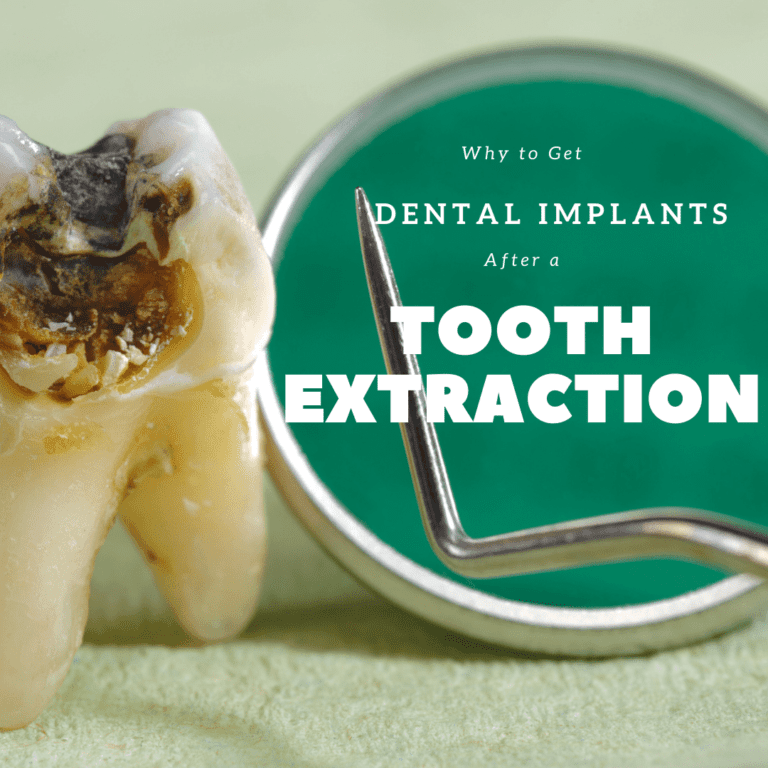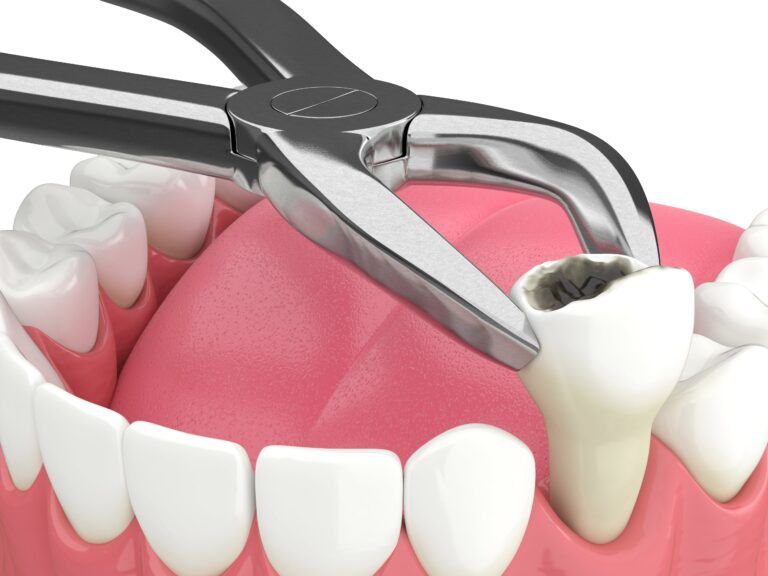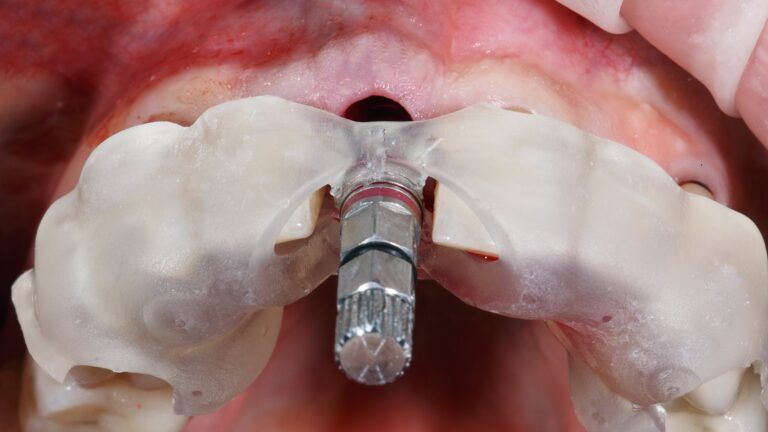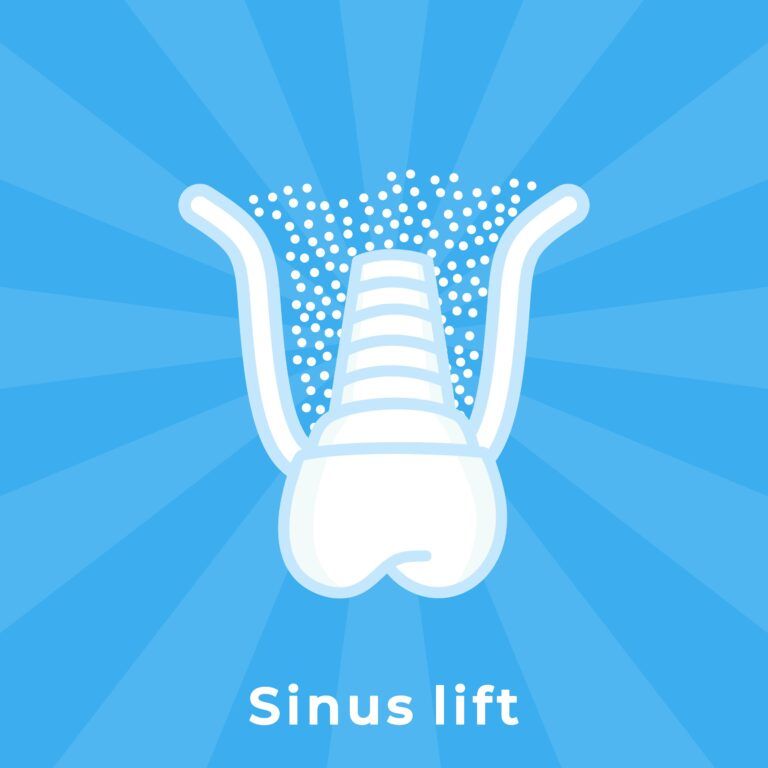Timing is important for many things in life. In fact, most of our daily routines are built upon doing certain things at the right time. Fluctuations in timing can even result in chaos. For example, waking at a later time than usual can cause you to miss a train or bus, which can then make you late to work. When having dental implants placed, timing is also an important factor. In some cases, your timing can even contribute to whether or not you are an ideal candidate for dental implants. So, what is the best time to get dental implants? Most dental implant specialists would agree that the ideal time to have dental implants placed is just after having a tooth extraction. In order to explain why this is, we must first evaluate the reasons for tooth extractions, why to replace missing teeth, and the benefits of having dental implants placed immediately after an extraction.
Do I need a tooth extraction to get dental implants?
Dental implants are artificial tooth roots implanted into the jaw to act as an anchor for a dental prosthetic. This ultimately means that they are used to replace missing teeth, rather than to restore natural teeth. In cases where you’ve had one or more teeth knocked out or that have simply fallen out, an extraction may not be necessary. However, this is assuming that the entire tooth was knocked out or lost in a single piece.

In many cases, however, an extraction may be necessary prior to getting dental implants placed. This is generally the case when you have one or more teeth that are severely damaged and/or decayed. Although there are a variety of restoration options available, there are certain cases where extracting one or more problematic teeth is a better option than attempting to restore the natural teeth.
Teeth may also be extracted when severe gum disease has resulted in the deterioration of the periodontal ligament, cementum, and alveolar bone. These three structures are essential in supporting the tooth and holding it firmly in the socket. As they deteriorate, the tooth will become looser and looser until it eventually falls out. For this reason, an extraction may be necessary to safely remove the tooth.
There are also cases where a full mouth extraction may be needed. During a full mouth extraction, all the remaining teeth in the mouth are extracted, usually to make room for an implant-supported denture. Full mouth extractions may be necessary when multiple teeth are severely worn, decayed, or affected by gum disease.
Do I need to replace a missing tooth after having an extraction?
Even if you know that an extraction is necessary, you may be wondering why it would also be necessary to replace the extracted tooth. After all, the threat to your oral health has just been removed, so what harm can a gap between two teeth do? Since your teeth work collectively to allow proper eating and speaking functions, even missing a single tooth can have severe consequences to your oral health.

For starters having one or more missing teeth limits your ability to chew and speak properly. The exact affect on your diet and speech can vary depending on the location of the missing tooth. In some cases, you may not notice too much of a difference, especially if you are only missing one tooth. However, this is only a minor way that a missing tooth can affect you.
Besides making it harder to chew and speak properly, missing one or more teeth also affects the alignment of your bite. This can occur in two different ways. First, the teeth surrounding the gap could begin to shift sideways as a way of filling in the gap left by the missing tooth. Second, the opposing tooth can also start to fill in the gap by growing to an unnaturally long length. This can happen since there is no longer an opposing force to regulate tooth growth. Both horizontal and vertical shifting movements among the surrounding teeth will ultimately change the way that your bite aligns, which can further complicate proper eating and speaking, as well as lead to temporomandibular joint disorder.
In case those reasons are not enough to convince you, missing teeth also lead to bone loss in the jaw and face. This is because the jawbone requires the forceful stimulation of chewing and biting to maintain its bone mass. When a tooth is missing, that part of the jawbone does not receive the necessary amount of stimulation, which causes the body to leach bone out of that area and redistribute it to other parts of the body that need it more. This is known as bone resorption and it generally begins about six months after a tooth is lost. Over time, bone resorption can cause your facial structure to change as the bone deteriorates.
Why to Get Dental Implants After a Tooth Extraction
This brings us to the most important benefit of getting dental implants immediately after a tooth extraction. Having dental implants placed after a tooth extraction means that you should still have adequate bone mass to allow for the safe placement of a dental implant without the need for a bone graft. In some cases, however, a bone graft may still be needed, especially in cases where periodontal disease has caused some bone loss. Since dental implants provide the same stimulation as natural tooth roots, this also means that your bone mass and facial structure will be preserved.

Not only does having implants placed after an extraction mean that you will most likely have enough bone mass, but it also means that you will need to undergo less procedures. Having a tooth extraction and then waiting to have dental implants placed means a minimum of two procedures. Depending on how long you wait, this could also mean a possible third procedure to place a bone graft to replenish lost bone caused by bone resorption. Instead of looking at a minimum of three procedures, having dental implants immediately after your extraction means you only need one procedure. This also means that you only need to undergo dental sedation and recovery once instead of three times.
Immediate dental implants, as they are often called, also offer the benefit of a shorter recovery period. Part of this is simply due to the fact that you will only need to recover once instead of three different times. However, it is also due to how the implants are placed. After the affected teeth are extracted, the tooth socket is completely open and empty to allow for the immediate placement of a dental implant. This minimizes the amount of drilling preparation your dentist will need to do to place the implant, which means the area will heal faster and with less discomfort.
To Sum it All Up:
- Dental implants are made to replace missing teeth
- Teeth may need to be extracted due to severe damage, decay, or wear. In some cases, an entire mouthful of teeth may need to be extracted
- Replacing missing teeth is important to maintain proper function, bite, and appearance
- Dental implants are an ideal replacement for missing teeth since they preserve bone mass by providing the necessary stimulation
- Immediate dental implants prevent bone loss, minimized the number of procedures, and have a shorter recovery period

Irfan Atcha, DDS, DICOI, DADIA at New Teeth Chicago Dental in Chicago, Illinois is a board-certified general dentist and a nationally recognized expert in dental implants, cosmetic dentistry, and sedation dentistry. Dr. Atcha is now serving patients in Naples, Bonita Springs and SW FL area with All-on-4 implants, teeth-in-a-day, same day dental implants and the complex zygomatic dental implants for the no-jaw bone solution approach. To schedule a consultation please email Dr. Atcha at teethforyou@gmail.com.





